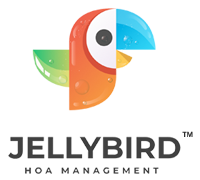Whether board members are reviewing bank statements, comparing vendor bids to choose the one that presents the best value, or making decisions on past-due accounts, many board tasks and responsibilities have repercussions that will impact the HOA’s annual budget. This is why, in this article, we’ll provide some tips for making planning decisions throughout the year that will help you create an accurate and applicable annual budget with ease.
Consistently maintain financial records
Creating an annual budget will be much easier if you record and organize financial records, such as utility bills, vendor invoices, insurance bills, and bank statements, as the association receives them.
Balancing the HOA’s books each month will help your association maintain an accurate understanding of its financials and whether the community is gaining revenue, losing funds, or holding steady. This will help the board determine whether it needs to increase or decrease the budget for next year or, perhaps, increase assessments.
Management services, such as JellyBird HOA Management, can provide your association with expert bookkeeping services to make this part of the budgeting process simple for board members.
Update the association’s reserve study regularly and follow its recommendations
A reserve study lists a community association’s assets, estimates when they will need to be replaced, and projects how much money it will take to replace them. The reserve study also explains how much money the HOA will need to save to its reserve account each year to make these repairs and replacements.
If an association follows the reserve account budgeting plan included in its reserve study and updates the reserve study every 3-5 years, it should be able to easily and accurately budget funds for its reserve account.
Start planning the budget early
You’re a volunteer with a lot on your plate, and an annual budget for a community association is a big project! Give yourself a break by beginning the planning process early and dividing up various budget planning tasks among board members. If needed, you could even appoint a temporary committee to help with some of the leg work.
As a general rule of thumb, start planning the next year’s annual budget in May or June, and create a schedule of deadlines for each step your community leaders need to complete to finish the project.
Divide the budget into necessary costs and desired expenses
Create a specific line item for each of the HOA’s costs, such as water, electricity, annual meeting mailings, holiday decorations, tax services, social committee funds, and landscaping services, then divide the budget into two lists: things the HOA is legally obligated or required to have and things that would be nice to have but aren’t required.
Before raising assessments to cover a too-high budget, see if unnecessary expenses can be cut. Those may include expensive flowers in the common areas, catered meals for community events, and holiday decorations. However, remember that required expenses cannot be cut, so if the HOA cannot afford to print and mail annual meeting notices or afford legal counsel or tax services, assessments will need to be raised.
Don’t depend on unstable revenue
Fines and fees for violations and late assessments may bring enough income at times to positively impact the community, but an association should not rely on such sources of revenue because they are not guaranteed; one year, an association may receive a thousand dollars in violations fines, but the next year, it may receive nothing. Undependable income like this may be used for more frivolous expenditures, such as gift cards for Yard of the Month winners or refreshments at the annual meeting (or the association could save these funds in the reserve account).
If an association has problems with delinquent assessments, community leaders should take these missing funds into account while planning the budget. Fund the HOA’s needs without counting the missing assessments as available revenue. At the same time, actively seek out the missing assessments. Once the delinquent accounts are brought current, they can be added back as revenue in the budget.
These guidelines are only the tip of the iceberg when it comes to managing HOA finances. For more useful information, check out the Boardline Academy course Introduction to Association Finances (FIN-101).

